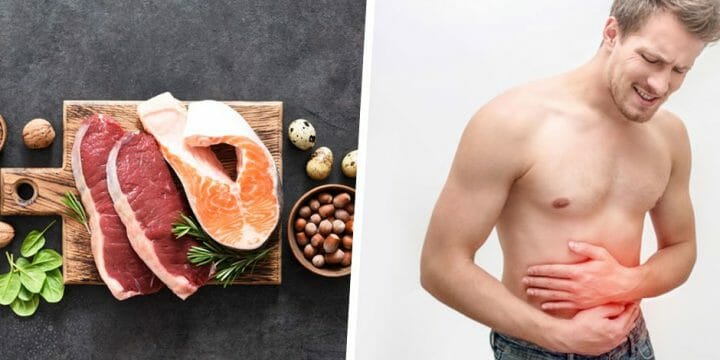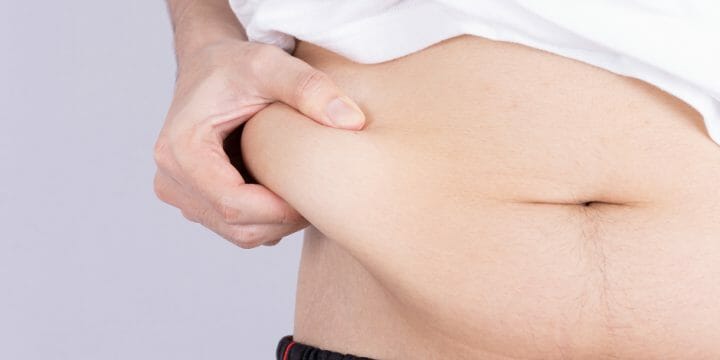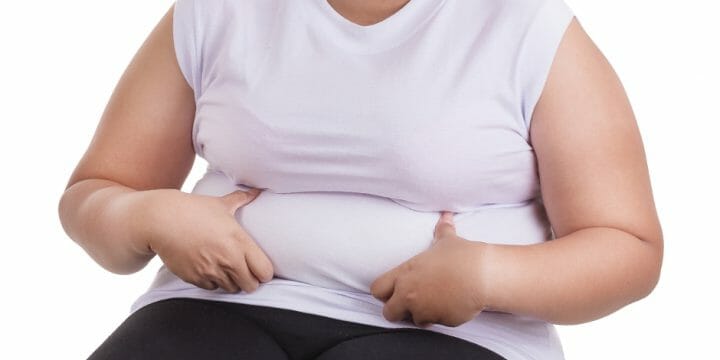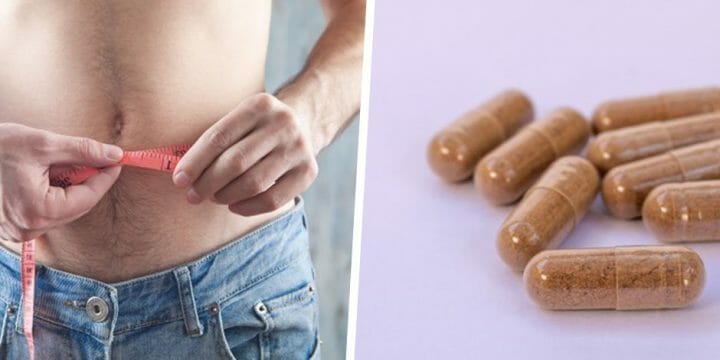Most of my new clients are always interested in knowing the fastest way to body fat loss.
My answer is always the same — to lose fat faster, you must combine several proven weight loss strategies simultaneously.
In this article, I’ll share some of these strategies my clients have used over the years to speed up their weight loss successfully.
Let’s dive in.
Quick Summary
- In a week, you can lose 1-2 pounds of body fat by combining diet, strength training, and sufficient sleep.
- You can enhance your fat loss journey with cardio exercises and intermittent fasting, alongside your primary routine.
- The National Institute of Health (NIH) indicates that the ideal amount of weight to lose per week differs due to factors like age, gender, and hormones, which influence the body's efficiency in fat storage and metabolism.
- As a personal trainer, I've witnessed the significant impact of combining these methods for effective and sustainable fat loss.
How Fast Should You Lower Your Body Fat Percentage?
You should lower your body fat by 1-3% during one month on a strict weight loss regimen.
According to the National Institute of Health (NIH), the amount you should lose in a week varies because of variables that affect body composition, such as age, gender, and hormones influencing the body’s efficacy in storing and metabolizing fat [1].
And If you’re looking to fast-track the results without compromising your health, make sure to check out our list of best diet pills that we extensively tested ourselves both for safety and efficacy.

Why Is Body Fat Essential?
According to Harvard Health, body fat is crucial, providing energy, protecting organs, controlling blood pressure and cholesterol, and aiding cell growth [2].
While shedding fat is often celebrated, it's vital for our health. Obsessing over fat loss can rob your body of these essential benefits.
Striking a balance is key to healthy weight and fat reduction. Regular exercise and a balanced diet ensure sustainable weight management, keeping the necessary fat for optimal health.
Remember, when losing fat, it's important to maintain its critical role in your overall health and well-being.
5 Methods to Lose Body Weight Faster

As a personal trainer, I recommend losing weight faster by eating healthier, getting adequate sleep, incorporating strength training and cardio into your workouts, and considering intermittent fasting.
Let's dive deeper into these effective strategies.
1. Eating Better Food
I always emphasize to my clients that diet is crucial in their weight loss journey. Therefore, you should begin by choosing foods that naturally burn fat and opt for low-calorie choices to establish a calorie deficit.
Remember, body fat is essentially an energy reserve. Cutting down on calories is a smart move for burning fat.
Include these in your diet: Fish, eggs, avocados, olive oil, nuts, seeds, and dark chocolate.
Steer clear of these: Fried and baked goods, margarine, and processed snacks.
2. Strength Training
Recent study by NIH has shown that four weeks of resistance training decreases body fat by 1.46% [3].
In addition, stretching reduces fat mass and visceral fats, which is a type of fat surrounding the belly organs.
“When we look at diet alone versus diet plus resistance exercise, studies consistently show that the most significant reductions in fat mass happen when you combine diet and strength training.”
- Isaac Alexis, M.D. Founder of Slim Samurai Weight Loss Therapeutics
Strength training activities utilize all major muscle groups such as the back, hips, abdomen, shoulders, hips, and arms 2 to 3 times a week. The training program ensures that muscle mass is retained and that the body does not use it as an energy source to compensate for the calorie deficit.
3. Cardio

Cardio exercises like walking, running, swimming, and cycling train your heart and lungs and are great for losing body fat, particularly belly fat.
Research from the National Library of Medicine shows that aerobic exercises are particularly effective for middle-aged women in burning belly fat [4].
For maximum fat loss, mix in high-intensity interval training (HIIT). HIIT alternates between intense bursts of activity and rest or low-intensity exercises.
An NIH study demonstrates that HIIT is more effective for fat loss compared to steady-state aerobic workouts [5].
4. Enough Sleep
In my experience as a personal trainer, I've seen how an extra hour of sleep can really boost fat loss.
The Annals of Internal Medicine published research showing a direct link between lack of sleep and a poor insulin response. I've noticed that clients who are sleep-deprived have cells that are 30% less responsive to insulin [6].
Insulin is crucial for regulating blood sugar. When your body resists insulin, except in fat cells, it leads to increased blood sugar and more fat storage.
According to WebMed, this often results in obesity, high blood pressure, and type 2 diabetes [7].
I always advise my clients to aim for 7-8 hours of sleep each night. Skimping on sleep not only increases fat gain but also makes losing fat much harder.
Here are some tips if you’re having trouble sleeping:
- Eliminate caffeine 4-6 hours before bed
- Turn off the lights in your bedroom, including your computer and smartphone
- Relax for about an hour before sleep.
- Try not to exercise too late as it raises your body temperature.
5. Intermittent Fasting

I've seen the benefits of intermittent fasting, which is less extreme than water fasting and involves cycles of eating and fasting.
According o scientists from the National Center of Biotechnological Information, restricting calories extended the lifespan of female mice [8].
From my experience with the keto diet, fasting helps keep the body in ketosis, a state where fat is burned for energy instead of carbs.
Wondering if it's backed by science? Definitely. A study by NIH on alternate-day fasting for 1-3 months resulted in a 7% weight loss and a 12-pound reduction in body fat [9].
Related Article: How Long Should I Workout a Day to Lose Weight?
Long-term Sustainability of Rapid Fat Loss
I've seen how quick-fix fat loss tactics can backfire, causing nutrient loss, muscle reduction, and a slower metabolism.
To achieve lasting results, it's important to gradually adjust your diet and exercise routine.
From my experience, after clients experience initial weight loss, transitioning to a balanced lifestyle with whole foods, regular activity, and plenty of water is crucial.
I always emphasize the importance of strength training to boost metabolism.
Maintaining a consistent routine, ensuring enough sleep, and managing stress are essential for ongoing success. I encourage my clients to practice mindful eating and set realistic goals to foster a healthier relationship with food.
FAQs
How Long Does It Take To Lose 5% Body Fat?
It takes from ten days to several months to lose 5% of body fat with proper nutrition and exercise programs. However, you must train intensively every day for at least half an hour and stay away from foods with sugar to lose weight in such a short period.
How Much Belly Fat Can You Lose one Week?
You can lose about 1-2 pounds of belly fat in one week. But it also depends on factors such as age, gender, body fat, current weight, and muscle mass, among other factors that affect the rate at which someone loses weight. Interestingly, the more your overall weight, the more you are bound to lose in the initial period.
Where Do You Lose Weight First?
It depends on your gender where you will lose weight first. If you’re a woman, your breasts, belly, and arms are the first places you’ll lose fat. On the other hand, men lose it on their trunks first, then arms and legs.
References:
- https://www.ncbi.nlm.nih.gov/books/NBK221834/
- https://www.health.harvard.edu/staying-healthy/know-the-facts-about-fats
- https://pubmed.ncbi.nlm.nih.gov/34536199/
- https://pubmed.ncbi.nlm.nih.gov/33825676/
- https://pubmed.ncbi.nlm.nih.gov/28871849/
- https://www.acpjournals.org/doi/10.7326/0003-4819-157-8-201210160-00005
- https://www.webmd.com/diabetes/insulin-resistance-syndrome
- https://www.nia.nih.gov/news/calorie-restriction-and-fasting-improve-health-female-mice
- https://www.ncbi.nlm.nih.gov/pubmed/26374764
About The Author
You May Also Like






